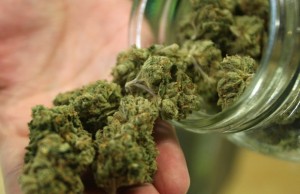 The 2022 Maryland legislative session is still a few weeks away from commencing, but there is already a proposed bill on the books. House Bill 1 was pre-filed last week by a state delegate from Baltimore City, who is also the chairman of the state’s cannabis workgroup that was formed over the summer. The text of the bill was made available to the public on December 22 but will not officially be introduced in Annapolis until January 12, 2022. The bill basically directs the General Assembly to create law governing the legal use of cannabis for all adults over age over 21 as long as it passes in the next general election. This means voters will ultimately decide whether marijuana becomes legal in November of 2022. The question on the ballot will be short and sweet, and read “Do you favor the legalization of adult-use cannabis in the State of Maryland”. As regular readers are aware, cannabis legalization has consistently been supported by the majority of Maryland residents according to scientific polling. The most recent polling conducted by Goucher College in Towson has support for legalization over 60 percent, which is well beyond the possible margin of error. If the voters act as Goucher predicts it looks like we’ll have recreational marijuana for sale in Maryland as early as July of 2023.
The 2022 Maryland legislative session is still a few weeks away from commencing, but there is already a proposed bill on the books. House Bill 1 was pre-filed last week by a state delegate from Baltimore City, who is also the chairman of the state’s cannabis workgroup that was formed over the summer. The text of the bill was made available to the public on December 22 but will not officially be introduced in Annapolis until January 12, 2022. The bill basically directs the General Assembly to create law governing the legal use of cannabis for all adults over age over 21 as long as it passes in the next general election. This means voters will ultimately decide whether marijuana becomes legal in November of 2022. The question on the ballot will be short and sweet, and read “Do you favor the legalization of adult-use cannabis in the State of Maryland”. As regular readers are aware, cannabis legalization has consistently been supported by the majority of Maryland residents according to scientific polling. The most recent polling conducted by Goucher College in Towson has support for legalization over 60 percent, which is well beyond the possible margin of error. If the voters act as Goucher predicts it looks like we’ll have recreational marijuana for sale in Maryland as early as July of 2023.
In order for this pre-filed bill to make it to become law and end up on the ballot in November it would have to be approved by at least three fifths of the total members of the House and Senate. In reality there will likely be at least four fifths or 80 plus percent of lawmakers supporting the proposed referendum when it’s all said and done. The legislature will then get busy creating rules for use, distribution, possession, regulation and taxation of cannabis within the state. Two of the main issues regarding cannabis legalization (at least in the eyes of lawmakers) are determining where the tax revenue will go and addressing the impacts to law enforcement and the rest of the criminal justice system. Some lawmakers have expressed concerns over the possibility of increased cases of impaired driving, and the inability of police to determine impairment, though law enforcement officers are already trained to recognize impairment from other substances besides alcohol. Additionally, the standardized roadside exercises created by the NHTSA are not only designed for alcohol use.
The real drastic change for law enforcement after marijuana is legalized will be with probable cause determination to search upon stopping a vehicle. Police will no longer be able to search a vehicle based on the smell of cannabis once it’s legalized for recreational use. While possession of small amounts of pot are no longer criminal, it is still considered contraband for those of us without medical marijuana cards. Contraband means illegal regardless of whether there are criminal or civil punishments. There will be exceptions to his rule of course, as drivers (and potentially passengers) under the age of 21 would likely still be subject to automobile searches by police. Possession of marijuana by an individual under 21 will probably a similar civil infraction to possession of alcohol by a minor, but both are still illegal and require a court appearance.
The Blog will continue to follow this bill as we come closer to the 2022 legislative session. There won’t be many proposed laws receiving more attention than cannabis legalization, though there is not much doubt as to whether it will pass. The interesting parts of this issue will be the specific rules that lawmakers apply to the implementation of recreational marijuana in Maryland. The Blog will certainly post on the development of this policy, as it will greatly impact the criminal justice system. Roadside searches are perhaps the most common means for police officers to locate other contraband such as firearms and narcotics. If you have been charged with any offense in Maryland contact criminal defense lawyer Benjamin Herbst anytime for a free consultation. Benjamin specializes in drug crimes such as possession with intent to distribute and gun offenses such as illegal possession of a firearm, and has defended clients in all Maryland jurisdictions. He is also and experienced Maryland federal criminal defense attorney for clients with cases in Greenbelt or Baltimore City. Benjamin has successfully defended clients against charges including possession of a firearm in a federal facility, federal DUI, white collar crimes including theft of government property, and federal drug possession and distribution and is standing by to help.
Resources:
Maryland legislature to consider voter referendum on legalizing marijuana for 2022 ballot, wtop.com.
 Criminal Defense Lawyer Blog
Criminal Defense Lawyer Blog

